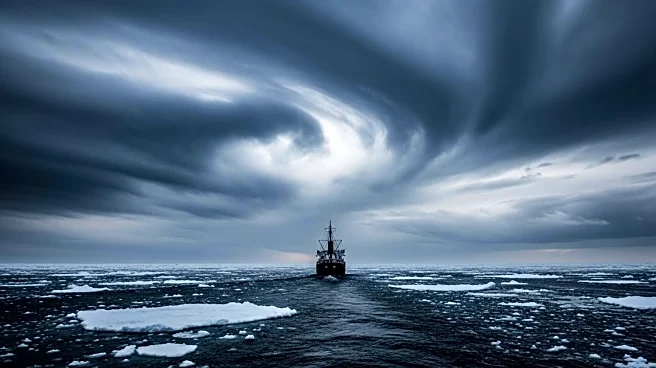What is the story about?
What's Happening?
A suspect wanted by Russia for 16 years in connection with the alleged hijacking of the freighter Arctic Sea has been arrested in Cyprus. The Arctic Sea, carrying $1.8 million worth of lumber, was intercepted by men in a rubber boat in Swedish waters in 2009. The ship went dark off Brest, leading to a search by the Russian Navy, which seized the vessel near Cape Verde Islands. The crew was unharmed, and eight alleged hijackers were arrested. The shipowner claimed no ransom demand was received, while the insurer reported a $2 million demand. The accused claimed they were environmentalists held hostage by the captain. Speculation suggests the vessel may have been carrying illicit Russian arms, intercepted by a team from another nation.
Why It's Important?
The arrest of the suspect revives interest in the Arctic Sea case, which has been shrouded in mystery and speculation. The case highlights the complexities of maritime security and the potential involvement of state actors in covert operations. The allegations of arms smuggling and the involvement of the Russian Navy suggest geopolitical implications and the potential for international diplomatic tensions. The case also underscores the challenges in prosecuting maritime crimes and the long-standing impact on those involved.
What's Next?
The suspect, a Russian-Israeli national, is being held in Cyprus pending extradition hearings to determine if he can be sent to Russia for trial. The outcome of these hearings could provide further insights into the Arctic Sea affair and potentially lead to new revelations about the alleged hijacking and its motives.
Beyond the Headlines
The Arctic Sea case raises questions about the nature of piracy and maritime crime, as well as the legal and diplomatic challenges in addressing such incidents. The involvement of multiple nationalities and the potential for arms smuggling highlight the complexities of international maritime law and the need for cooperation among nations to ensure security at sea.














